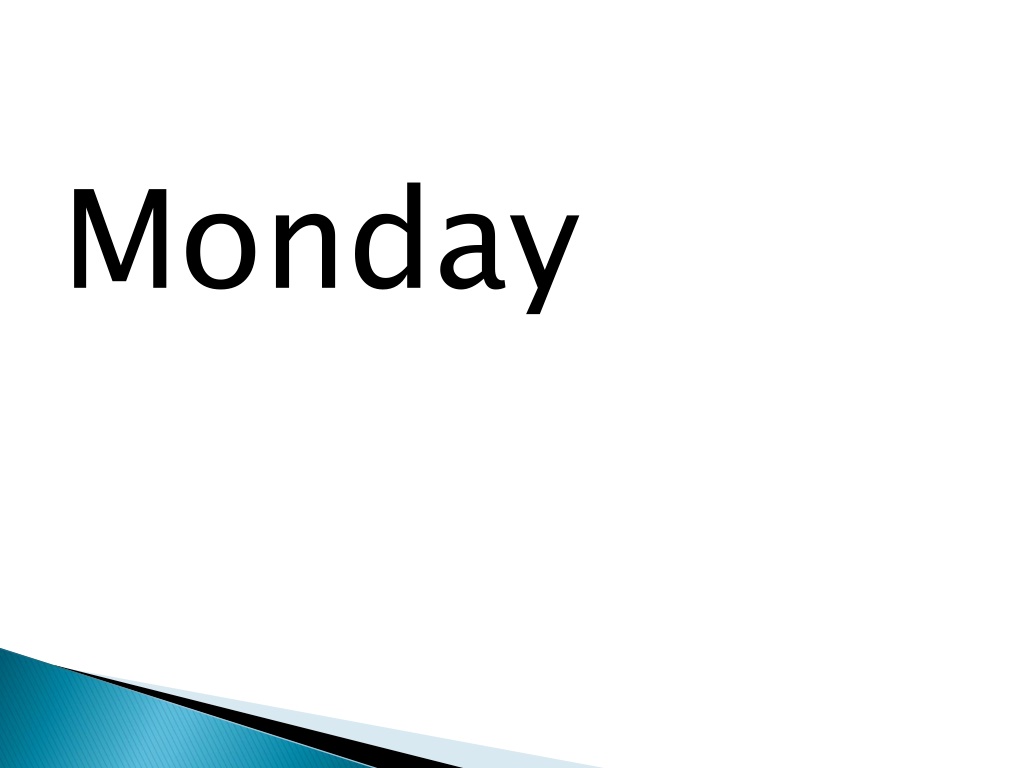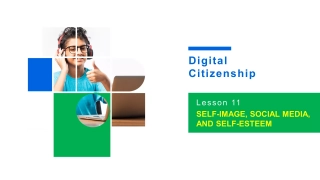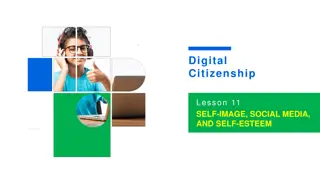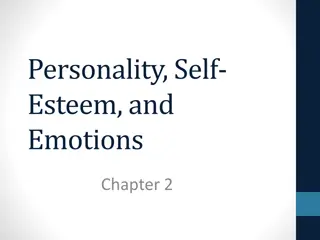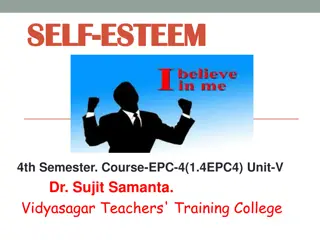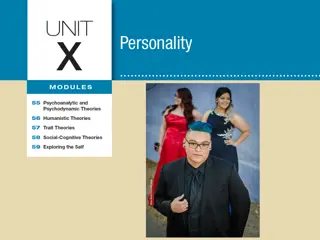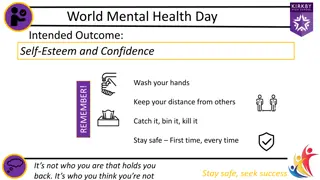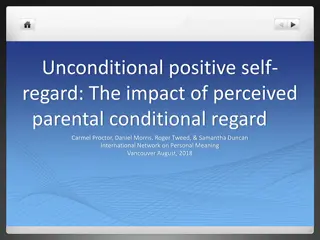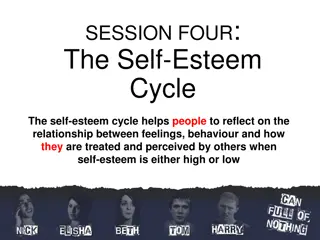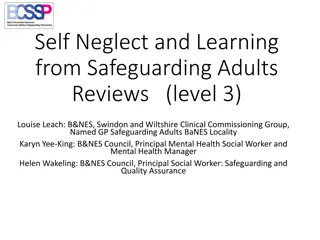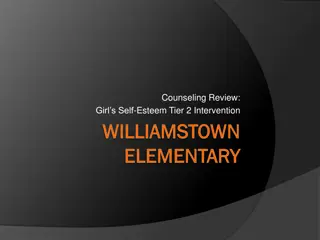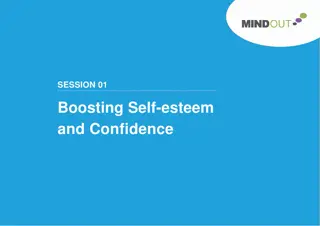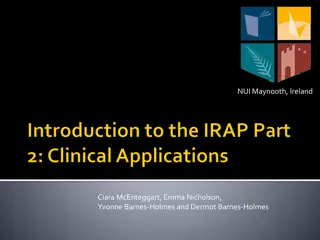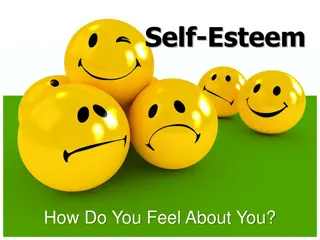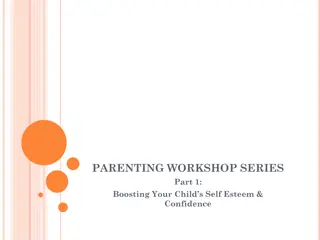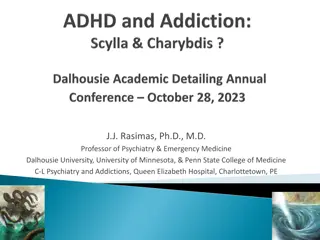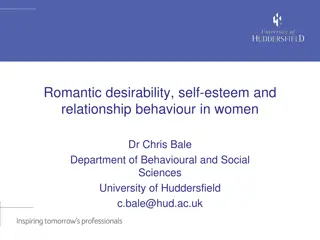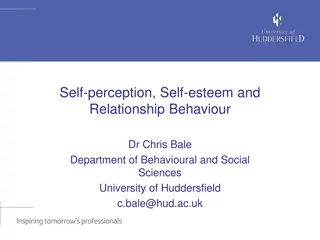Understanding Addictions and Self-Esteem
Exploring various types of addictions such as drug addiction, exercise addiction, gambling addiction, and nicotine addiction. Discussing factors like depression, negative self-esteem, genetic vulnerability, and coping skills. Highlighting the importance of self-esteem, self-control, and social-emotional environment in managing addictions and supporting mental well-being.
Download Presentation

Please find below an Image/Link to download the presentation.
The content on the website is provided AS IS for your information and personal use only. It may not be sold, licensed, or shared on other websites without obtaining consent from the author. Download presentation by click this link. If you encounter any issues during the download, it is possible that the publisher has removed the file from their server.
E N D
Presentation Transcript
1. A standard or belief 2. An interpersonal contact that helps a person feel encouragement and support 3. Voluntarily postponing an immediate reward in order to complete a task before enjoying a reward 4. A person s belief about his or her worth 5. The degree to which a person regulates his or her own behavior 6. The quality of contacts a person has with the people with whom he or she interacts A. Self-esteem B. Delayed gratification C. Social-emotional environment D. Value E. Social-emotional booster F. Self-control
Assignments Due: 1. Lesson 9 Vocab DUE Tuesday 2. Social Emotional Homework DUE FRIDAY Mon August 13, 2018 Today s Agenda: 1. Warm-Up 2. Take notes on common addictions 3. Vocab Review worksheet Essential Question: How can addiction affect health status? Objective: I will be able to list 10 addictions.
A compelling desire to use a drug or engage in a specific behavior and continued use despite negative consequences, and loss of control.
Depression Negative self-esteem Genetic vulnerability Feelings of guilt or shame Traumatic childhood Feelings of tension, anxiety, boredom, or loneliness Difficulty expressing feelings Trouble managing anger Constant need for approval Poor coping skills Difficulty delaying gratification Denying problems
1. Drug addiction Compelling desire to use a drug even though it harms relationships Feeling the need to use because they are bored, anxious, lonely, or depressed Using to avoid facing problems or emotions 2. Exercise addiction Compelling desire to exercise Usually accompanies an eating disorder
3. Gambling Addiction A compelling desire to bet money or other things Casinos, lotteries, sporting events 4. Nicotine Addiction The compelling desire for nicotine Stimulant drug found in tobacco products Most smokers start before the age of 18
5. Perfectionism The compelling desire to be flawless Over critical - Nothing is ever good enough Most people that become perfectionists had adults put unrealistic expectations on them during their childhood 6. Relationship Addiction The compelling desire to be connected to another person Use contact with another person when they are feeling depressed or insecure
7. Shopping Addiction The compelling desire to purchase things Hoarding They feel in control when they are making purchases Often feel very guilty after 8. Television/Computer Addiction The compelling desire to watch TV or engage in activities on the computer They use these devices to avoid their real problems or emotions
9. Thrill-seeking addiction The compelling desire to take unnecessary risks During risky experiences, biochemical changes occur in the brain that produce pleasure 10. Workaholism The compelling desire to work to fill an emptiness Excessive work or studying They do not enjoy themselves when they are not working Use work to avoid real problems or emotions
1. Stay informed Review up to date information about addictions Understand the causes and treatments
2. Review the characteristics of teens at risk for developing additions Do any of these characteristics describe you or a friend? What can you do to protect yourself?
3. Recognize addictions in yourself or others Admit or have the person admit that they have a problem If they are not ready to admit there is a problem, it is unlikely that they will be willing to get help
4. Get help Call a trusted adult Search online or call 1-800 numbers Ask a counselor or an adult you trust
1. Having a compelling desire to take a drug or engage in a behavior
2. Taking a drug or engaging in a behavior instead of dealing with feelings of anxiety, depression, boredom, or loneliness
3. Feeling bad about oneself after taking the drug or engaging in the behavior
4. Taking a drug or engaging in the behavior despite negative consequences
5. Trying to stop but being unable to do so
Grab a textbook and turn to page 83 Put it the basket when finished If you do not finish in class, it is homework
If you did not turn in your Lesson 9 Vocab sheet yesterday, it is due to the class basket BEFORE you start your warm If you did not turn in your Lesson 9 Vocab sheet yesterday, it is due to the class basket BEFORE you start your warm- -up up WITHOUT LOOKING AT YOUR NOTES!!! See how many of the 10 addictions we listed on our notes yesterday you can remember: 1. 2. 3. 4. 5. 6. 7. 8. 9. 10.
Assignments Due: 1. Lesson 9 Vocab DUE TODAY 2. Social Emotional Homework DUE FRIDAY Tue August 14, 2018 Today s Agenda: 1. Warm-Up 2. Watch Intervention and answer questions Essential Question: How can additions affect your health status? Objective: I will watch an intervention video and reflect on how addition affects the entire family..
Watch the Intervention video and complete the handout as you watch. I will collect the handouts at the end of the class period
Wednesday/ Thursday
Write a minimum of TWO sentences about the following quote: Rephrase it in your own words Share how this has applied to you in your own life How can you apply this to your life in the future? What does this quote mean to YOU?
Assignments Due: 1. Social Emotional Homework DUE FRIDAY Wed/Thu August 15/16, 2018 Today s Agenda: 1. Warm-Up 2. Finish Intervention collect Questions 3. Pass back graded papers 4. Update Unit 2 Tracking Sheet 5. Present mental disorder categories in groups/ Take notes on mental disorders 6. Take notes on three TED talks about different mental disorders Essential Question: What are the different categories of mental disorders? Objective: I will be able to list and define the 8 categories of mental disorders.
4 = 10 3 = 8-9 2 = 6-7 1 = 5 0 = 4 or less
Your group will be assigned one of the 8 categories of mental disorders You will look it up in the textbook on pages 89- 91 As a group, you will use a white board to present the following information to the class: Name of category Description/ Definition Examples/ Characteristics The class will be taking notes from your board, so make the words LARGE and EASY TO READ! You will have 15 minutes to have your board ready to present.
https://www.ted.com/talks/thomas_insel_to ward_a_new_understanding_of_mental_illness http://www.ted.com/talks/elyn_saks_seeing_ mental_illness https://www.youtube.com/watch?v=VYs05qP ycYQ
Turn in your Social Emotional Environment Homework BEFORE you start your warm-up 1.A disorder in which a person s brain deteriorates 2.A disorder in which a person s patterns of thinking, feeling, and acting interfere with daily living 3.A mental disorder in which a person has a compelling need to starve, to binge, or to binge and purge 4.A disorder in which a person regularly violates the rights of others and breaks social rules 5.A disorder in which there is a breakdown in logical thought processes 6.A disorder in which a person has symptoms of disease but no physical cause can be found 7.A mental disorder involving moods that are extreme 8.A disorder in which real or imagined threats prevent a person from enjoying life A. Anxiety Disorder B. Somatoform Disorders C. Mood Disorders D. Cognitive Disorder E. Conduct Disorder F. Schizophrenia G. Eating Disorder H. Personality Disorder
Assignments Due: 1. Social Emotional Homework DUE TODAY Fri August 17, 2018 Today s Agenda: 1. Warm-Up 2. Finish TED talk videos with partners Essential Question: How can mental health disorders affect one s life? Objective: I will be able to describe how certain mental health disorders can impact one s health status.
